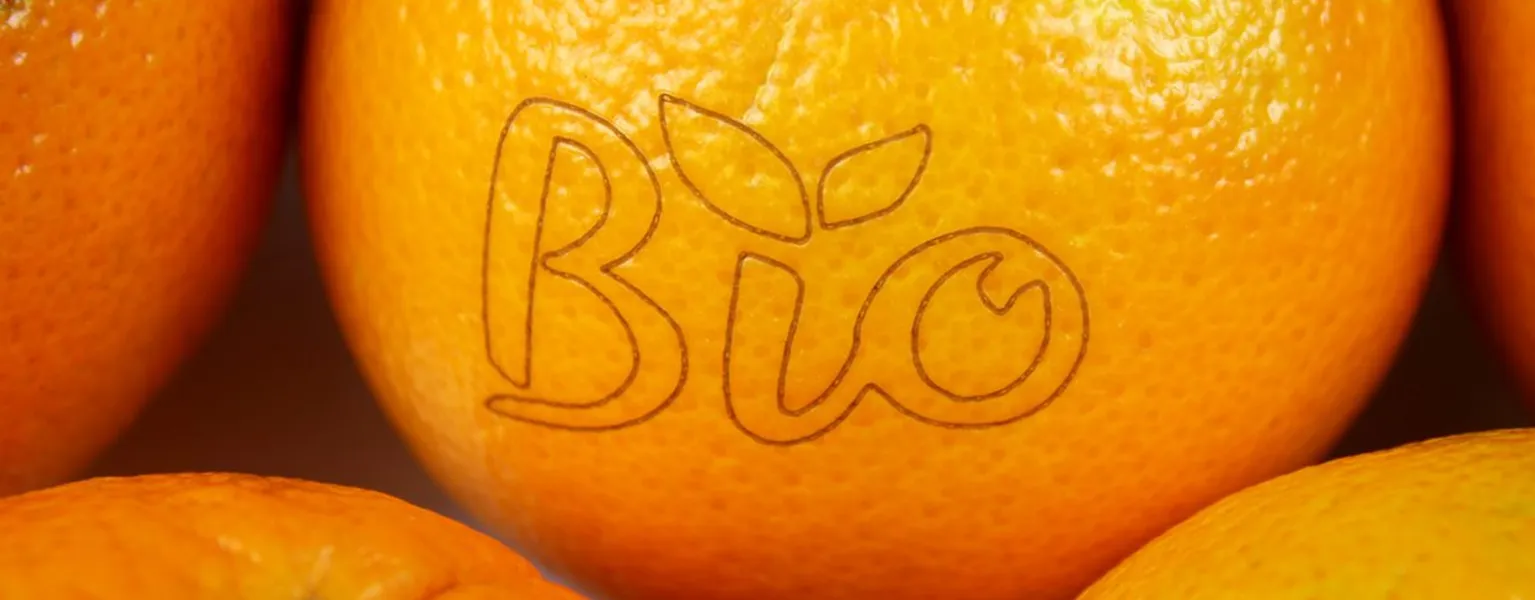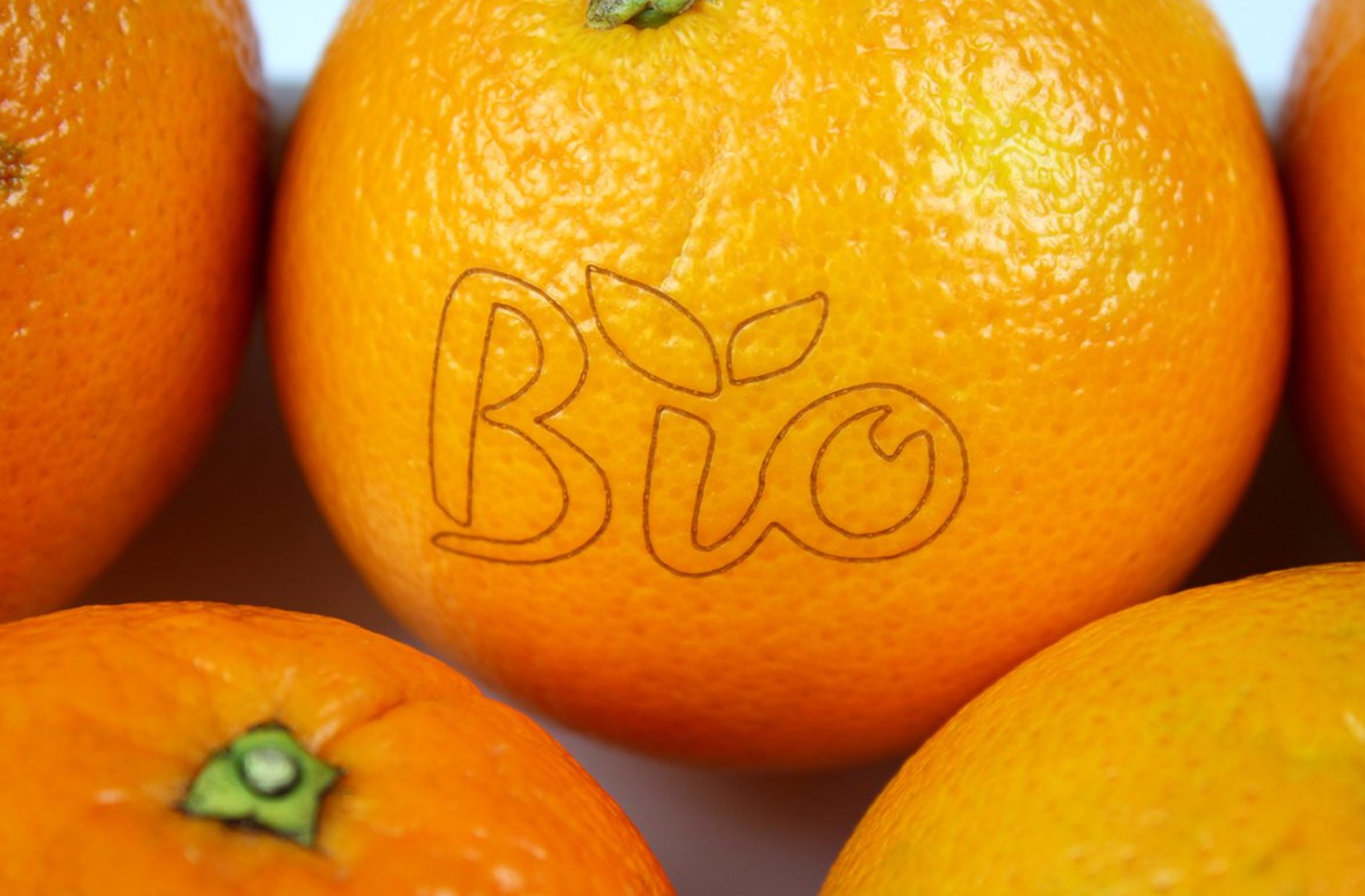Macsa Id: Laser marking on fruit

Supplier News
Marking on fruit is essential to ensure product traceability, detect incidents, and identify the product’s origin data. Identification is normally carried out by sticking adhesive labels directly onto the fruit or its packaging, with the risk of the labels becoming unstuck or unreadable before they even reach the consumer’s home.
However, with society and businesses becoming increasingly focused on sustainability, the most recommended system for this type of application is undoubtedly laser technology. Known in the industry as the “natural mark”, the philosophy of this new direct product coding originates from consumers’ interest in returning to bulk or unit-based products, aiming at minimizing packaging while preserving the environment.
Macsa Id solution
In this case, we have utilised laser technology to mark fruits such as oranges, lemons, limes, pears, and apples. This is a permanent marking process that doesn’t affect the fruit’s properties or pose any harm to the consumer’s health. The laser removes a micrometric layer from the fruit’s skin, achieving high-quality visibility and legibility in the marking, while leaving the edible part of the fruit intact.
Additionally, laser technology enables us to mark very thin organic material, such as pear, apple, and cucumber skin, with high-definition markings. You can mark the data that best suits your needs, such as the expiry date, batch number, text, logos, or images. This not only enhances traceability but also creates a more sustainable brand image, which is environmentally friendly and respects people’s health.

Are you looking to delve deeper into the numerous benefits and applications of laser marking technology when it comes to fruit, including its potential impact on quality control, traceability, branding, and environmental sustainability?
Contact us. We will be delighted to find the best solution for your needs.
This article was originally published by Macsa Id.
Related News
-
Supplier News
Macsa Id UK appoints Regional Sales Manager for the South
-
Supplier News
Macsa Id UK to showcase UV laser coder and thermal inkjet printer at PPMA
-
Supplier News
Macsa Id UK SPA2 CO2 laser coders ideal for marking cardboard pots used for dairy products
-
Supplier News
Macsa Id helps world renowned winery automate its coding, marking and labelling process
-
Supplier News
Macsa Id: Laser marking on polyethylene and recycled polypropylene freezer bags





